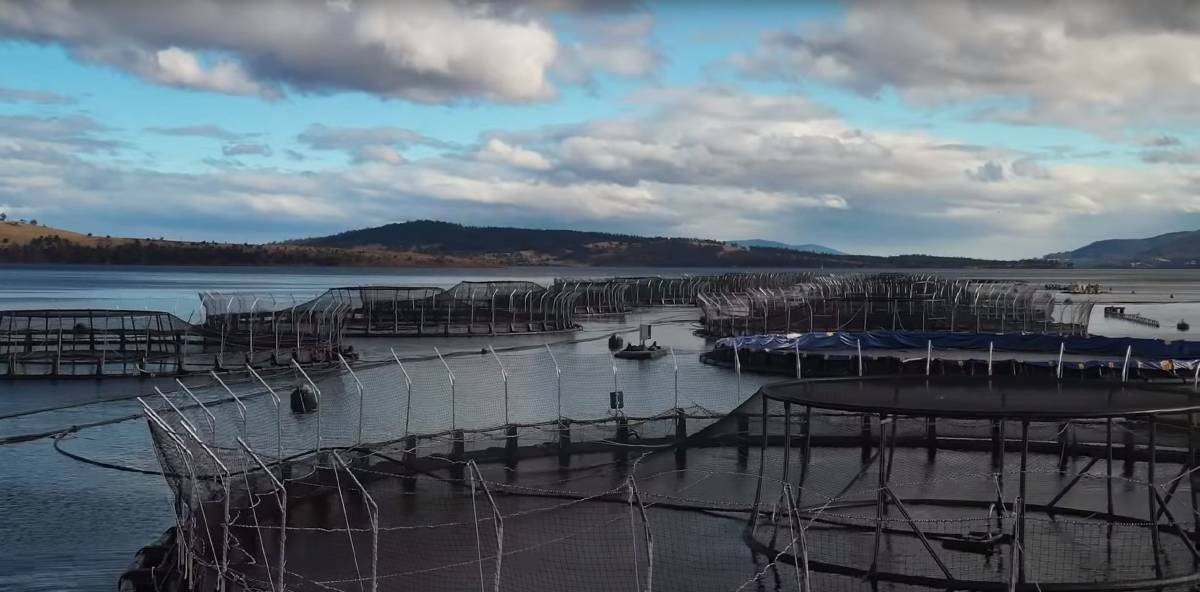
The Tasmanian government announced last week it would develop a 10-year salmon plan over the next 12 months to secure the future of one of the state's prime industries.
Subscribe now for unlimited access.
$0/
(min cost $0)
or signup to continue reading
The announcement follows a recent debate over the state's salmon industry after Richard Flannigan's book Toxic, and a documentary released by outdoor clothing company Patagonia Saving Martha painted a bleak picture of Tasmania's aquaculture industry.
As part of the plan, a 12-month moratorium on offshore salmon farm expansion was put in place with the government confirming they will stop granting leases in Tasmanian waters from January 1, 2023.
Primary Industries Minister Guy Barnett said the plan to be released near the end of 2022 would provide a roadmap for the industry including opportunities for land-based fish farming and deep ocean farming in commonwealth waters.
Clean Oceans founder Ben Lans said the plan was a positive step, with the group seeking a moratorium on the expansion of ocean-based fish farming.
I think what the announcement has said is that the government is paying attention.
- Ben Lans
"What the announcement has said is that the government is paying attention," he said.
"That's a really good thing.
"They've realised the tide is turning and they've got to do something about it."
The proposal to develop deep ocean fish farms in federal waters took a step forward when the state and federal governments signed a Memorandum of Understanding on September 27.
According to the government, the MOU would assess environmental and economic issues, as well as the feasibility of expanding into federal waters around Tasmania over the next 12 months.
At the signing of the MOU, Forestry and Fisheries Assistant Minister Jonno Duniam said the work would be undertaken by the Blue Economy Cooperative Research Centre.
CRC chief executive Dr John Whittington said the CDC was focusing on farming different species of seaweed and salmon in deep ocean fish farms in the Bass Strait - with early results looking promising.
Tasmanian Alliance for Marine Protection co-chairman Peter George said the MOU and salmon plan was a cover for the government and industry to double in size regardless of the cost to communities and waterways. "It changes nothing other than to pour more public money into supporting an unsustainable industry," he said.
Fees, compliance and regulation were also set to be reviewed with Mr Barnett saying additional positions would be created to support compliance, including a new Director of Fin Fish Compliance.
He also advised the EPA would separate from DPIPWE which would further enhance its role as an independent environmental regulator.
The government indicated the new plan would include a new industry fee structure with revenue to be reinvested into compliance and monitoring under a full cost recovery basis.
Tasmanian Salmonid Growers Association facilitator Dr Julian Amos said the Blue Economy CRC would give Australia a global advantage and welcomed the commitment to establishing sustainable aquaculture.
Our journalists work hard to provide local, up-to-date news to the community. This is how you can continue to access our trusted content:
- Bookmark www.examiner.com.au
- Make sure you are signed up for our breaking and regular headlines newsletters
- Follow us on Twitter: @examineronline
- Follow us on Instagram: @examineronline
Follow us on Google News: The Examiner



